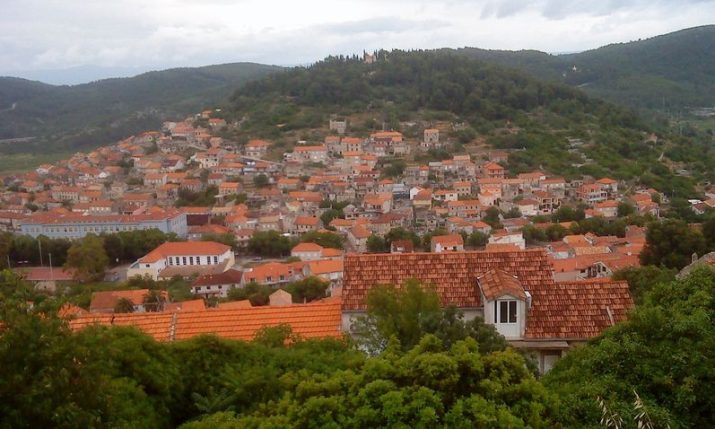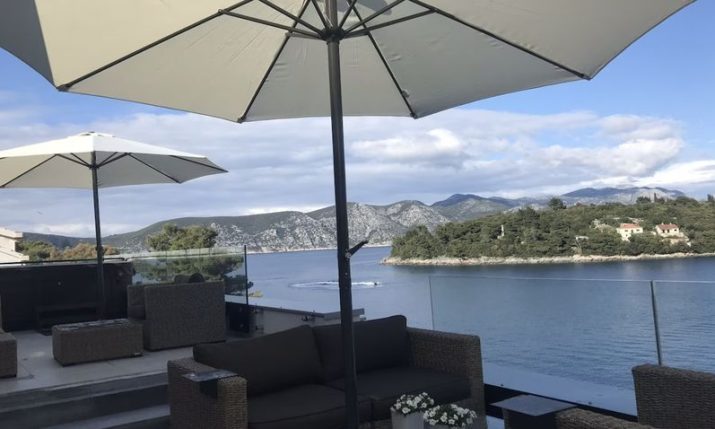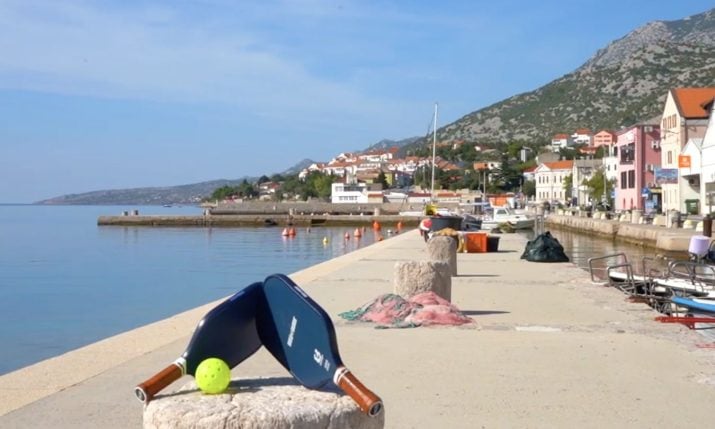PHOTOS: Sperm whales spotted near Korčula Island
- by croatiaweek
- in News
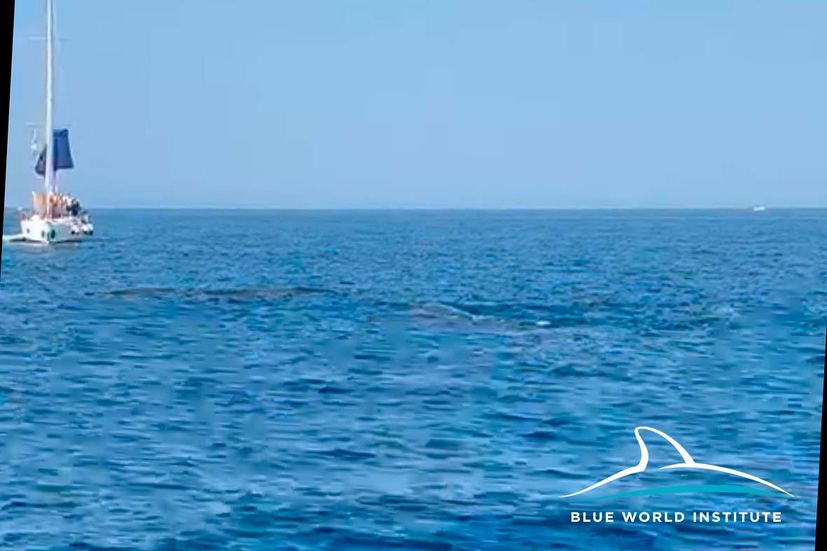
Sperm whales near Korčula Island (Photo credit: Blue World Institute)
The Blue World Institute received several reports this morning of a sighting of a group of large whales in the Adriatic Sea.
Upon analysing the sighting footage near the Croatian island of Korčula, they have determined that it is not a large baleen whale (Balaenoptera physalus) but a group of at least five sperm whales (Physeter macrocephalus).
Given that these animals typically inhabit depths of over 1,000 meters, they are at risk of stranding and mortality in the Adriatic.
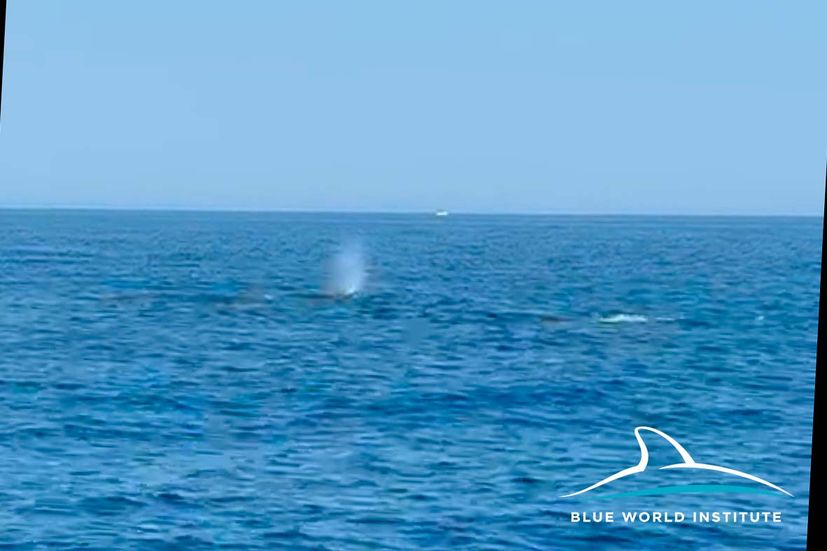
Sperm whales near Korčula Island (Photo credit: Blue World Institute)
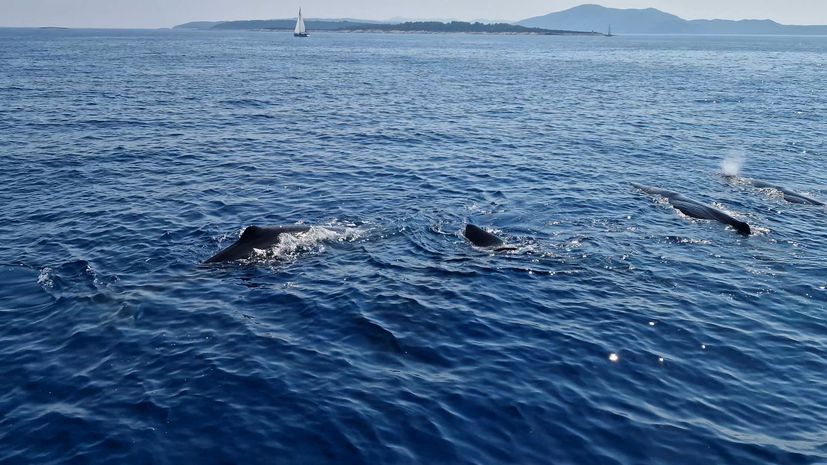
Sperm whales near Korčula Island (Photo credit: Zoltán Rétvári)
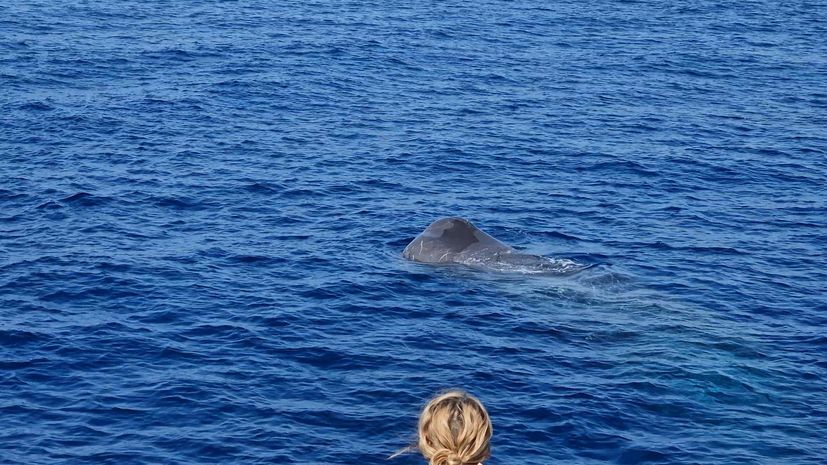
(Photo credit: Zoltán Rétvári)
“Due to sperm whales’ preference for deep-sea habitats and their relatively low numbers, sightings of them in the Adriatic are not common. We have recorded their rare but regular presence in the Adriatic using sound recording devices in the deep southern part of the Adriatic Sea and near the Otranto Strait,” Blue World Institute said, adding.
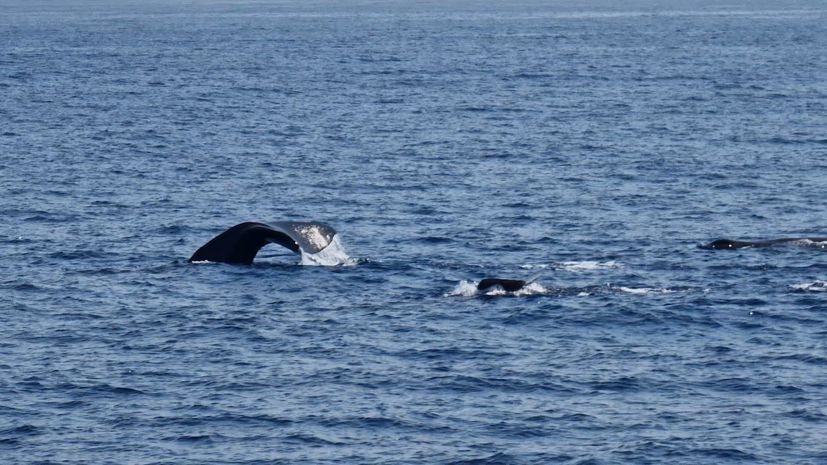
Sperm whales spotted near Korčula Island (Photo credit: Zoltán Rétvári)
Unfortunately, most encounters of sperm whales in the central and northern Adriatic have ended in strandings and deaths of individuals from observed groups, mostly on the Italian side of the Adriatic Sea. Therefore, it is crucial to monitor this group closely to determine their movement patterns and to be prepared to take rescue actions promptly.

Sperm whales near Korčula Island (Photo credit: Blue World Institute)
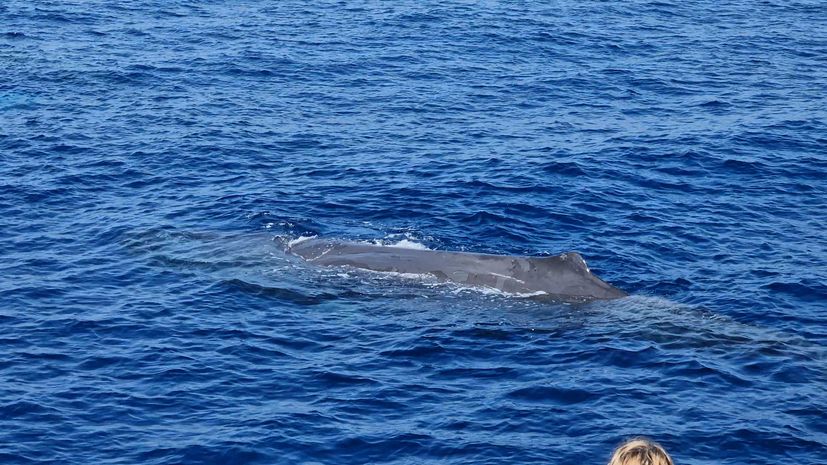
(Photo credit: Zoltán Rétvári)
Thanks to monitoring their movements in Croatia, based on reports from the public and media, in September 2014, Blue World Institute were able to alert their colleagues in Italy to the possibility of a group appearing in Italian waters.
The result was a timely response from the Emergency Response Group in Italy, and four out of seven individuals were successfully returned to the sea. This marked the first successful rescue operation of sperm whales in the entire Mediterranean.
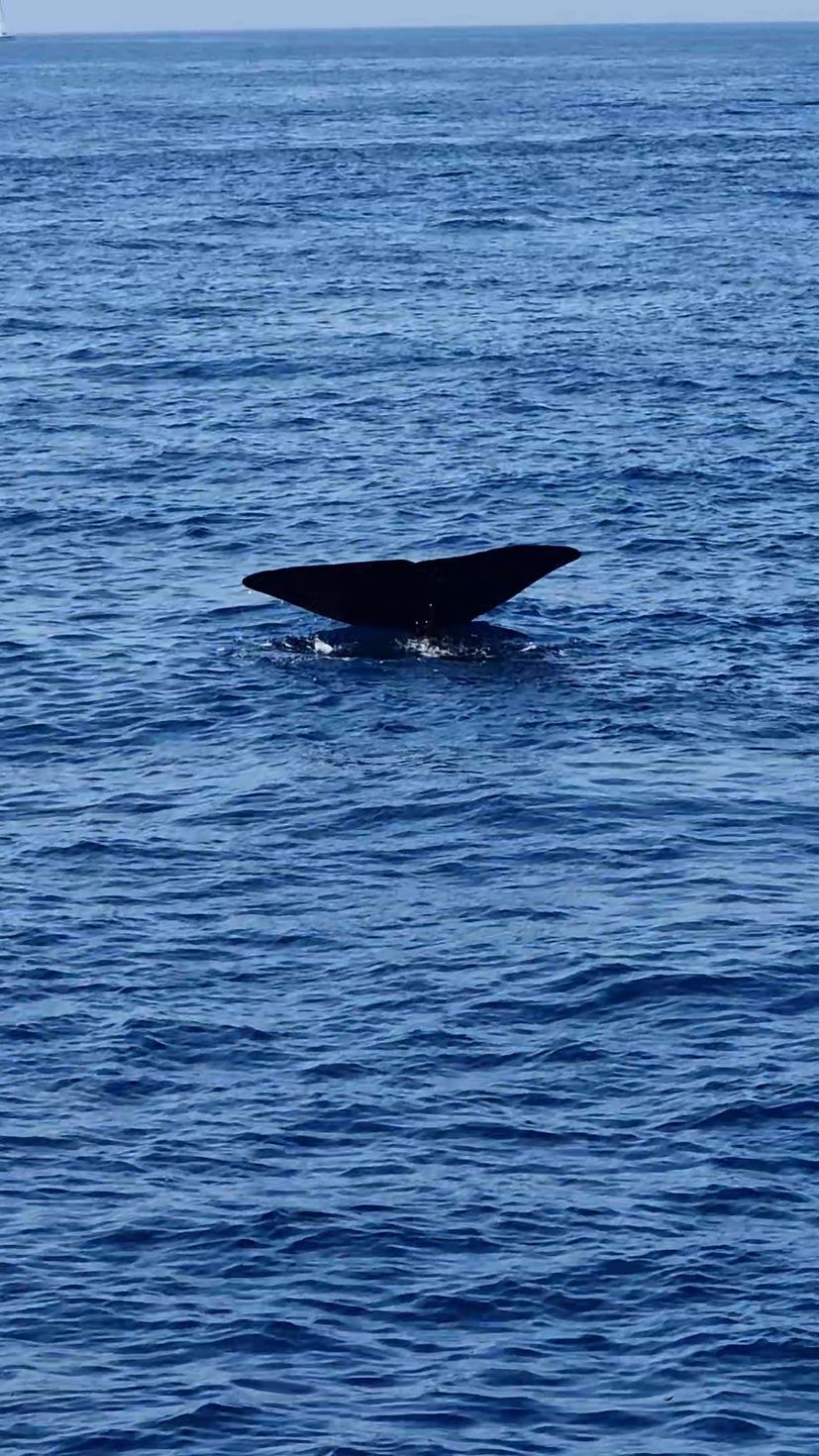
(Photo credit: Zoltán Rétvári)
The last recorded sighting of sperm whales in the Adriatic was near Rovinj in August 2016, when three adult individuals were present in the area for several days.
“Thanks to photographs provided by citizens, one of the three animals observed at that time was identified by colleagues conducting research in Greece and Italy, confirming that these animals use the entire Mediterranean as their habitat. Our goal is to ensure the safe exit of this group of sperm whales from the Adriatic, and we kindly request all citizens to report their sightings urgently so that we can track their movements and take necessary actions if needed. Reporting when you are in the vicinity of sperm whales or immediately after a sighting will greatly assist us in locating them, as our research teams in Vis and Lošinj are currently in the field and can be directed to the sighting locations,” Blue World Institute said, before conveying a message to the public.
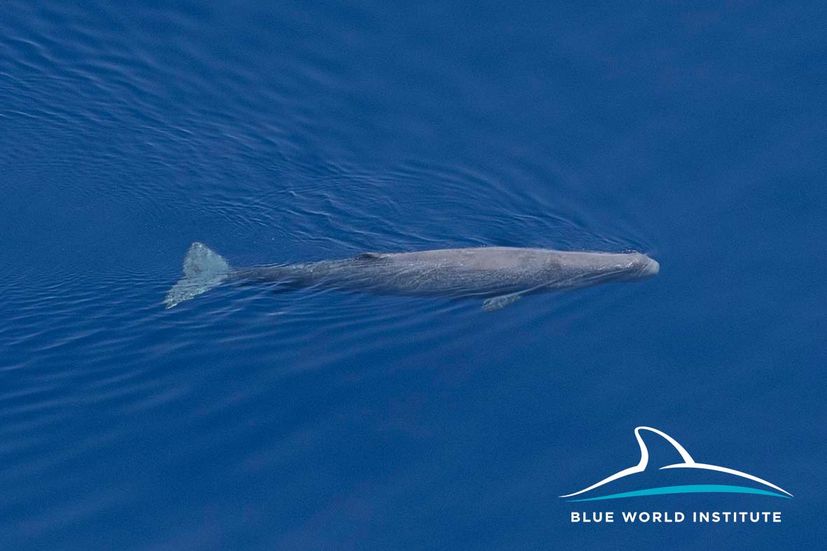
(Photo credit: D.Holcer/Blue World Institute)
“In the event of a sighting, please take photographs and/or videos of the animals and note the exact location, direction of movement, and time of the sighting. Report sperm whale sightings (preferably as soon as you spot them!) to the phone numbers of the Blue World Institute: 051 604666 or 091 4637424, email [email protected], or via the Marine Ranger mobile app, which can be downloaded from www.marine-ranger.org.”
Despite their size, sperm whales are harmless to humans if not approached closely. Considering that these animals are likely exhausted, disoriented, and disturbed as they are in an unfamiliar environment, we kindly ask that you do not approach or harass them to prevent unintentional stranding and mortality caused by human interference.



